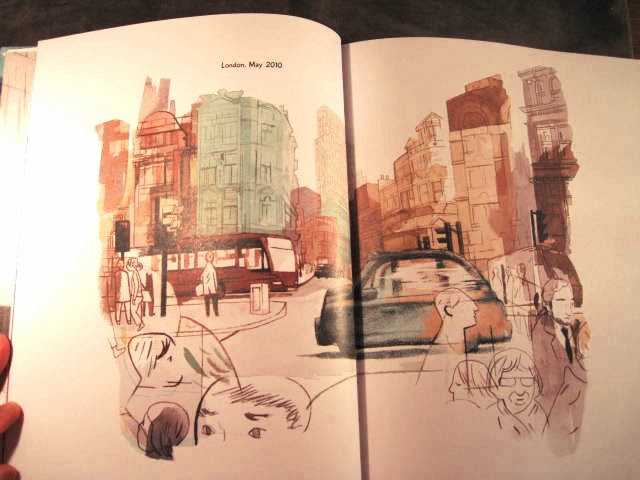Not My Father’s Son is a beautiful book. I honestly
can’t decide what I admire most about Alan Cumming’s memoir: the courage it
took to live his life or the skill it took to write about it. While reading, I
became caught up in the mechanics of the book, paying close attention to the
smooth transitions, the pacing, the appropriate balance of humor and tension.
His performances on stage and screen must have profoundly influenced his
writing style. Perhaps all writers hoping to develop their craft could benefit
from some theater coaching. Alan Cumming’s scenes were vivid and cinematic. His
delivery of lines was engaging and the way he added onto his stories in
suspenseful increments was masterful.
Sometimes I settle for either great writing or an intriguing
plot. A book doesn’t necessarily have to have both qualities to keep my
interest. But Alan Cumming, in addition to being a great writer, is a
fascinating person with a unique perspective. He tells the stories of his
childhood in Scotland, living in fear of his abusive father, and all the
experiences that shaped him. His father often gave Alan vague and impossible
tasks to complete, setting him up to fail just so he would have an excuse to
beat him. In one story, Alan’s father took him to a shed full of spruce
saplings and told him to separate the good from the bad. I suppose separating
the good from the bad is an invaluable life lesson. It’s something I’m still
trying to learn and probably always will be.
We’re all the products of our experiences, but, thankfully, we
can learn from our experiences and decide how they will shape us. I suppose
what I admire most about Alan Cumming’s memoir is his ability to distinguish
himself from his father’s hateful view of him. Although treated like one of the
runty saplings, Alan was able to separate himself and grow stronger. In the
end, he rises above his travails and triumphs.









